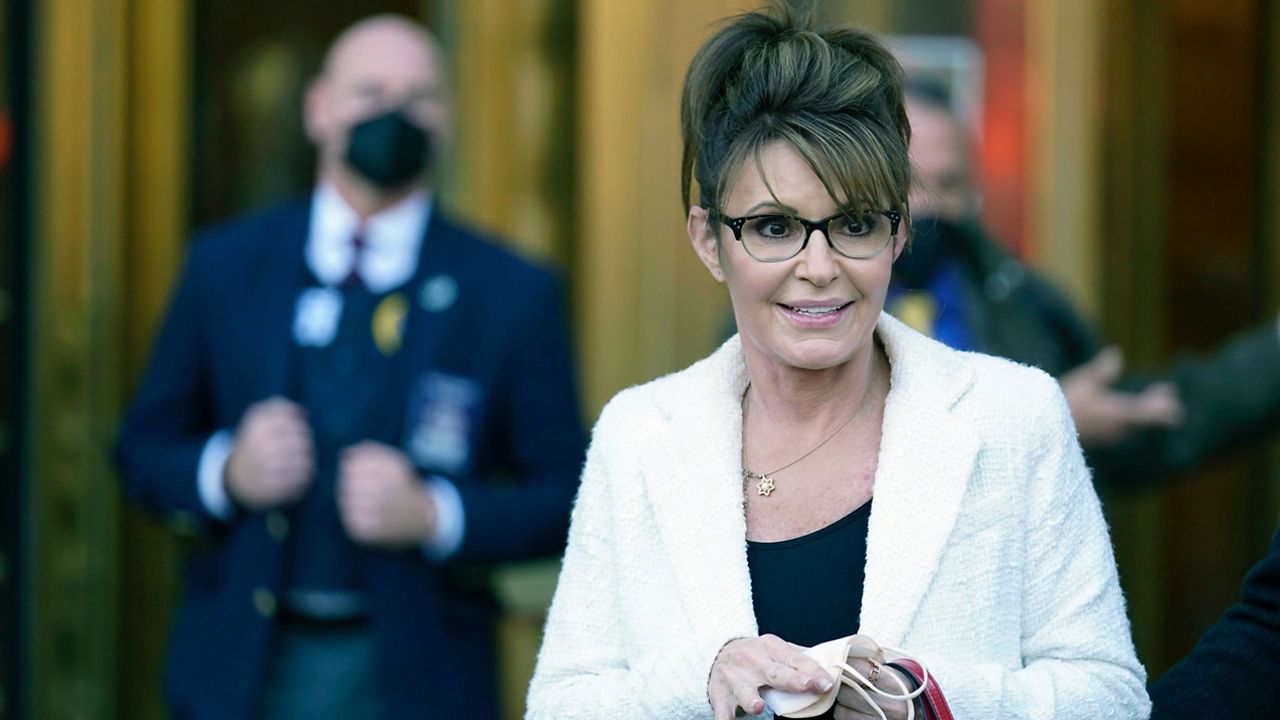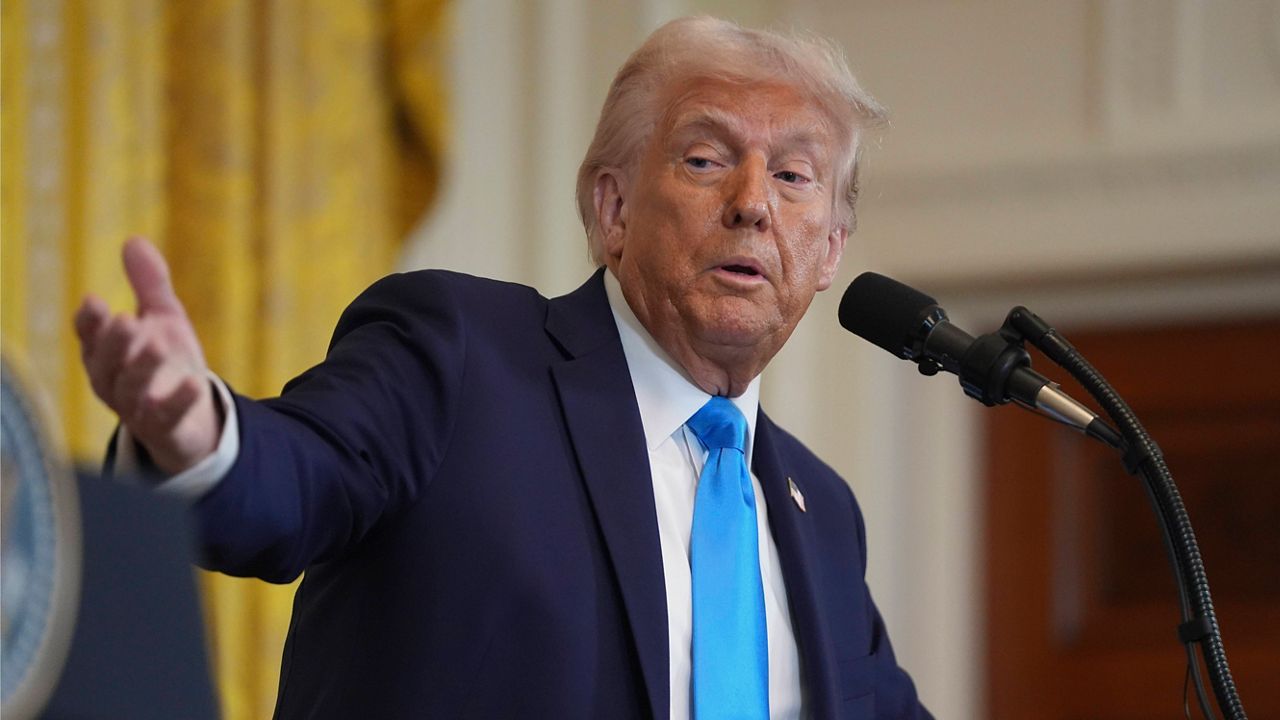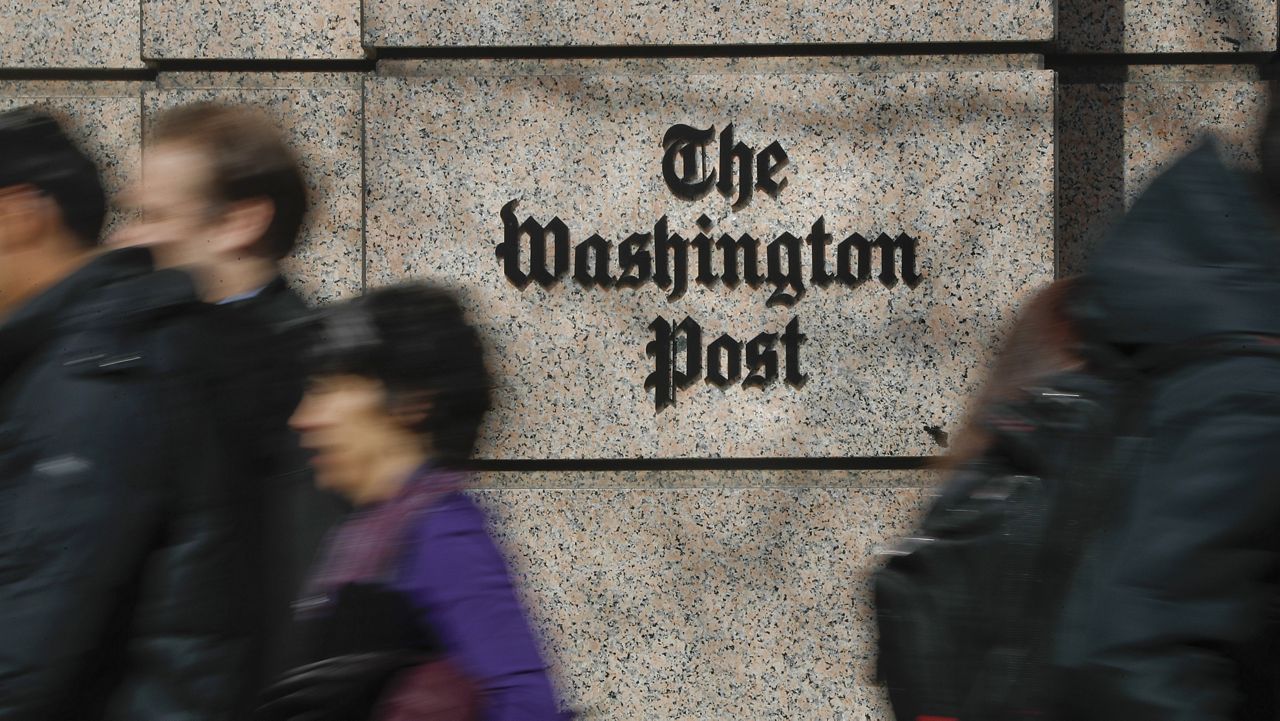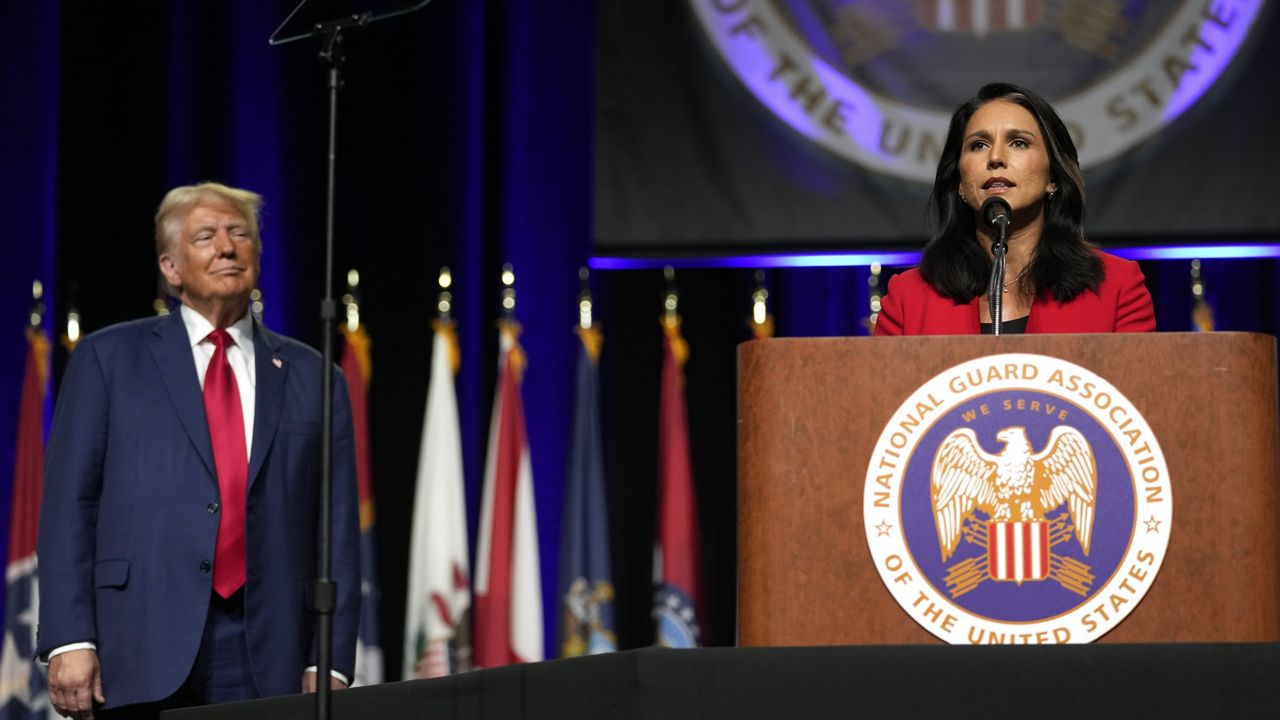It’s been a tale of two summers for Liz Cheney.
On one hand, the Wyoming Republican has featured prominently in the Jan. 6 hearings that captured the attention of the American people. As vice chair of the House Select Committee, Cheney has won widespread praise from both sides of the aisle as the panel sought to expose former President Donald Trump’s role in provoking the Jan. 6, 2021, riot at the U.S. Capitol.
But in her home state of Wyoming, where a Trump-backed challenger poses a strong threat to oust Cheney from the seat she’s held for three terms, it’s a totally different story.
Cheney’s unwavering criticism of Trump already cost her House GOP leadership role and brought her the censure of her own state’s Republican Party. She is well behind her Trump-backed Republican challenger, Harriet Hageman, in the polls — a Casper Star-Tribune poll last month had Hageman up 52% to 30%.
Trump has been hell-bent on ousting Cheney, even going as far as to hold a rally in Wyoming stump for her opponent in May.
“Worse than the terrible Democrats are the backstabbing RINO Republicans that are helping them do their act,” Trump said at the rally in Casper, Wyoming, in May. “And there is no RINO in America who has thrown in her lot with the radical left more than Liz Cheney.”
Of the ten Republicans who voted to impeach Trump last year for his role in the Jan. 6 insurrection, four have retired, three lost to Trump-backed opponents and only two have advanced to the general election in November — Cheney is the last one outstanding.
Kyle Kondik, managing editor of Sabato’s Crystal Ball at the University of Virginia Center for Politics, said that Republicans who voted to impeach Trump are now "very much an endangered species in the House."
"There's not much room in the party for out and out criticism of Donald Trump," Klondik told Spectrum News. "doesn't mean you necessarily have to be in lockstep with him all the time, but I think being a loud and prominent critic of Trump is a tough place to be in.”
ANd currently, there's arguably no more "loud and prominent critic of Trump" in the Republican party than Cheney.
“It’s not just the fact that she supported impeachment, but also that she has remained such a prominent critic of Donald Trump," Klondik said. "I think she's been trying to force Republicans to kind of reckon with the Trump era, reckon with Trump's misdeeds. And a lot of Republicans just don't want to do that.”
Years ago, the possibility Cheney might lose the House seat that her father — Vice President Dick Cheney — held for a decade would have been unthinkable.
But Cheney, for her part, has been undaunted by long odds she faces — in fact, in recent weeks, she’s only doubled down on her criticisms of the former president and his role in Jan. 6 riot.
Earlier this month, she enlisted the aid of her father for a campaign ad, in which the former vice president said that “in our nation's 246-year history, there has never been an individual who is a greater threat to our republic than Donald Trump.”
“He was a coward,” Dick Cheney says in the ad. “A real man wouldn't lie to his supporters. He lost his election, and he lost big. I know it, he knows it, and deep down I think most Republicans know it.”
Liz Cheney and her father were also the only two Republicans to attend a pro forma House session in January to commemorate the one-year anniversary of the Jan. 6 attack.
“Liz is fearless,” Dick Cheney says. “She never backs down from a fight. There is nothing more important she will ever do than lead the effort to make sure Donald Trump is never again near the Oval Office, and she will succeed.”
“I proudly voted for my daughter," he added. "I hope you will, too.”
Last week, Liz Cheney put out her final campaign message, a nearly two-minute and thirty second video titled “The Great Task,” which she described as standing up to “those trying to destroy our Republic.”
“America cannot remain free if we abandon the truth,” Cheney says in the ad. "The lie that 2020 presidential election was stolen is insidious. It preys on those who love their country. It is a door Donald Trump opened to manipulate Americans to abandon their principles, to sacrifice their freedom, to justify violence, to ignore the rulings of our courts and the rule of law.”
“This is Donald Trump’s legacy, but it cannot be the future of our nation,” she continues. “History has shown us over and over again how these types of poisonous lies destroy free nations. Like many candidates across this country, my opponents in Wyoming have said that the 2020 election was rigged and stolen. No one who understands our nation’s laws, no one with an honest, honorable, genuine commitment to our Constitution would say that. It is a cancer that threatens our great Republic.”
“If we do not condemn these lies, if we do not hold those responsible to account, we will be excusing this conduct and it will become a feature of all elections,” she warned. “America will never be the same.”
“My children and your children must grow up in an America where we have honorable and peaceful transitions of power,” Cheney concluded. “Not violent confrontations, intimidation, and thuggery. Where we are governed by laws and not by men. Where we are led by people who love this country more than themselves.”
“No matter how long we must fight, this is a battle we will win. Millions of Americans across our nation – Republicans, Democrats, Independents – stand united in the cause of freedom. We are stronger, more dedicated, and more determined than those trying to destroy our Republic.”
Cheney’s best hope is that enough Wyoming Democrats will switch parties to vote for her instead of their own party’s three candidates — none of whom stands a chance in November’s general election. Even Cheney’s close allies say she might be putting principle above success in this race.
That has fueled speculation that Cheney is angling for higher office in the coming years. She’s refused to rule out a 2024 presidential run.
Klondik told Spectrum News that although Cheney has big ambitions, it's unclear which political tent she might fall under.
"You never know, polls, and primaries are particularly can be sometimes inaccurate, but again, all the indications are that Cheney's going to lose," he said. "Then it's a question of whether she wants to run for president at some point, but I don't think she would have much of a chance getting nominated in either party, because if she were to try to become a Democrat, she's way out of step with the Democratic Party and all sorts of issues, even though she's a big critic of Donald Trump."
"I suspect she's going to remain a prominent person in American political life," Klondik added. "I don't necessarily know what her future elected path might be."

In Alaska, former vice presidential candidate Sarah Palin jumped on a vacancy in the state’s congressional delegation as a potential springboard back into elected office. A victory in Tuesday’s special election to fill the remaining months of the late Rep. Don Young’s term could send her to Washington as soon as next month.
Palin is on the ballot twice in Alaska: once in a special election to complete Young’s term and another full a full two-year House term starting in January.
Voters approved an elections overhaul in 2020 ending party primaries and instituting ranked voting in general elections. Endorsed by Trump, Palin finished first among 48 candidates to qualify for a special election. They were seeking to replace Young, who died in March at age 88, after 49 years as Alaska’s lone House member.
Palin is now trying to secure the win against the No. 2 and 4 finishers, Republican Nick Begich and Democrat Mary Peltola. The third-place vote-getter pulled out of the race after the special primary.
In a recent address to the Conservative Political Action Conference, Palin decried the new voting system, saying, “It is bizarre, it’s convoluted, it’s complicated. And it results in voter suppression.”
Tuesday’s ballot also features a House primary race and one for the U.S. Senate in which Trump’s influence may not prove decisive. Alaskans pick one candidate in each race, with the top four vote-getters advancing to the general election, regardless of party affiliation.
Republican Sen. Lisa Murkowski is seeking reelection to a seat she has held for nearly 20 years. She faces 18 opponents — the most prominent of which is Republican Kelly Tshibaka, who has been endorsed by Trump.
Murkowski, the state’s senior senator, is a Trump critic who voted to convict him at his impeachment trial following the Jan. 6 Capitol attack. The former president has railed against Murkowski, including at a rally with Tshibaka and Palin last month in Anchorage.
The House primary, meanwhile, has 22 candidates, including Palin, Begich and Peltola.
Begich has tried to cast Palin as a quitter because she resigned as governor partway through her term in 2009. Palin has referred to Begich, nephew of former Democratic Alaska Sen. Mark Begich and grandson of former Democratic Rep. Nick Begich, as her “fellow ‘Republican’” in the race. Begich counters that he’s always been a Republican, despite coming from a family of prominent Democrats.









